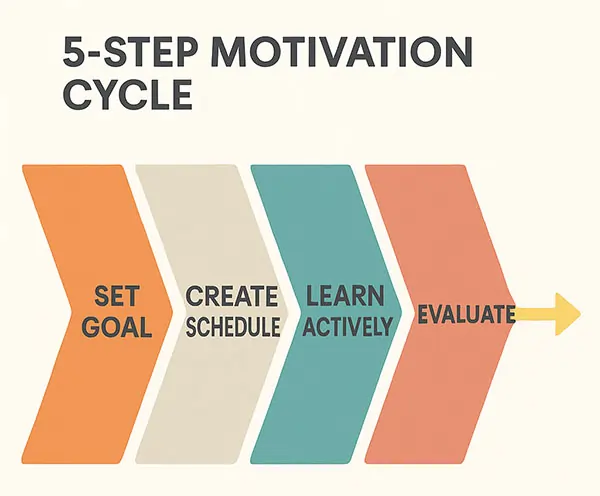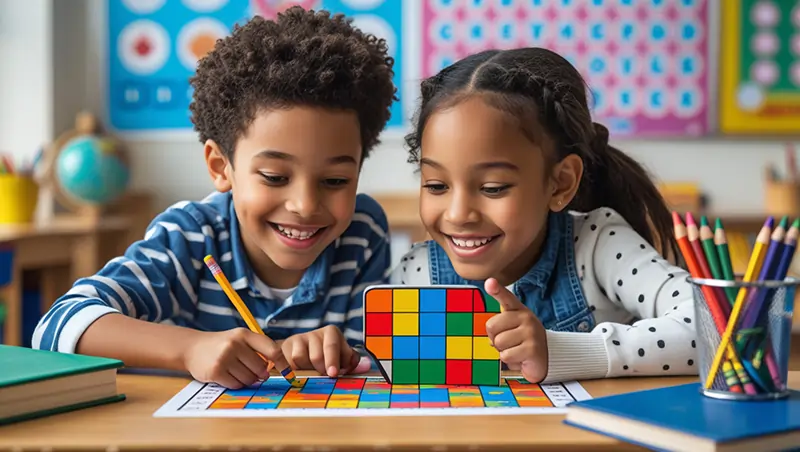A Guide to Competitive Exams for Kids: Boosting Skills Early
As the world becomes more competitive, it has become a big trend to get kids ready for schoolwork early on. One good way to help a child’s mind and personality grow is to have them take competitive exams for kids. These tests not only help you figure out how good they are at school, but they also help them develop all kinds of skills, like critical thinking, time management, and problem-solving.
This article is a full guide for parents and teachers who want to help kids get ready for competitive exams. It talks about the benefits of getting ready early, the most popular tests, helpful resources, and ways to keep kids interested.
Benefits of Early Preparation
Getting kids ready for competitive tests early on can help them build a strong base in both school and life skills. Here are some of the main benefits:
| Benefit | Description |
| Confidence Building | Regular participation helps kids feel better about themselves because they learn to solve problems on their own. |
| Improved Academic Performance | Being exposed to a wide range of questions and ideas helps you learn more than what you learn in school. |
| Skill Development | Teaches you how to think analytically, manage your time, and make decisions. |
| Preparation for Future Exams | Students get ready for big tests like the Olympiads, NTSE, and even the SATs later on by doing things early on. |
![Infographic: The Impact of Early Exam Prep
[A visual showing increasing levels of confidence, academic performance, and skill development over years.]](https://www.kidsworldfun.com/blog/wp-content/uploads/2025/06/the-impact-of-early-exam-prep.webp)
Popular Competitive Exams for Kids
There are a number of well-organized and respected competitive tests just for kids in school. Here’s a list:
| Exam Name | Classes | Subjects Covered | Conducted By |
| SOF Olympiads | 1 to 12 | Science, Maths, English, GK, Computer | Science Olympiad Foundation |
| NSTSE | 1 to 10 | Science, Maths | Unified Council |
| IMO | 1 to 12 | Mathematics | Science Olympiad Foundation |
| NSO | 1 to 12 | Science | Science Olympiad Foundation |
| Spell Bee | 1 to 9 | English Vocabulary & Grammar | Spell Bee International |
| Asset | 3 to 10 | English, Maths, Science | Educational Initiatives |
![Pie Chart: Distribution of Popular Exams by Subject Focus
[Pie segments: Maths - 30%, Science - 25%, English - 20%, GK - 10%, Others - 15%]](https://www.kidsworldfun.com/blog/wp-content/uploads/2025/06/distribution-of-popular-exams-by-subject-focus.webp)
These tests have different goals. Some are meant to compare the child’s performance to that of other children in the country or around the world, while others are meant to find and develop talent.
Essential Resources for Preparation
Kids need structured and interesting resources to do well on competitive tests. Here’s a list that is broken down by category:
1. Books and Guides
- SOF Workbooks and previous year papers
- Oswaal Books for Olympiads
- Brain Mapping Academy guides
2. Online Platforms
| Platform | Features |
| BYJU’S | Video lessons, interactive quizzes, and test series |
| Vedantu | Live online coaching and sessions to clear up questions |
| Toppr | Tests driven by AI and a thorough look at how well you did |
| Olympiad Success | Worksheets and mock tests on different topics |
3. Apps for Practice
- Khan Academy Kids – Learn the basics through games
- MentalUP – Brain games to improve your brainpower
- Quizizz – Fun quizzes on a variety of topics
![Diagram: Resource Ecosystem for Competitive Exams
[Central node: Child | Connected nodes: Books, Online Platforms, Mobile Apps, Mock Tests, Coaching]](https://www.kidsworldfun.com/blog/wp-content/uploads/2025/06/resource-ecosystem-for-competitive-exams.webp)
Motivation Strategies for Kids
During the preparation phase, it’s very important to keep kids motivated. Here are some good ways to do it:
1. Gamification of Learning
Use quizzes, flashcards, and challenges to make learning fun. Use point systems or badges as rewards.
2. Goal Setting
Make big goals easier to reach by breaking them down into smaller, more manageable tasks. To boost morale, celebrate small wins.
3. Parental Involvement
When parents show interest in their kids’ schoolwork, kids often feel more involved. Do small tests at home and help them learn.
4. Peer Learning
Studying in groups or joining study clubs can help people learn from each other and compete in a healthy way.
5. Mindfulness and Stress Management
To help people feel less anxious, teach them how to relax by doing things like deep breathing, visualizing, or doing short physical exercises.

Tips for Parents and Educators
- Start with interest: Don’t make kids take tests. Find out what they like to do or learn about.
- Balance is key: Make sure they don’t feel too much pressure. Keep a good balance between work and play.
- Use past papers smartly: Use old papers to practice, but leave room for new challenges.
- Keep communication open: Talk to them about how they feel about the preparation process often.
- Focus on effort, not results: Instead of just praising scores, praise effort and progress.
Conclusion
It’s not about putting pressure on kids when you introduce them to competitive exams for kids. It’s about helping them reach their full potential through structured challenges and constant support. When kids have the right tools, motivation strategies, and a supportive environment, they do well in school and learn important life skills that they will use for the rest of their lives. Encouraging skill development through competitive exams can set children on a path of lifelong learning and confidence. Start early, stay balanced, and watch your child thrive.





